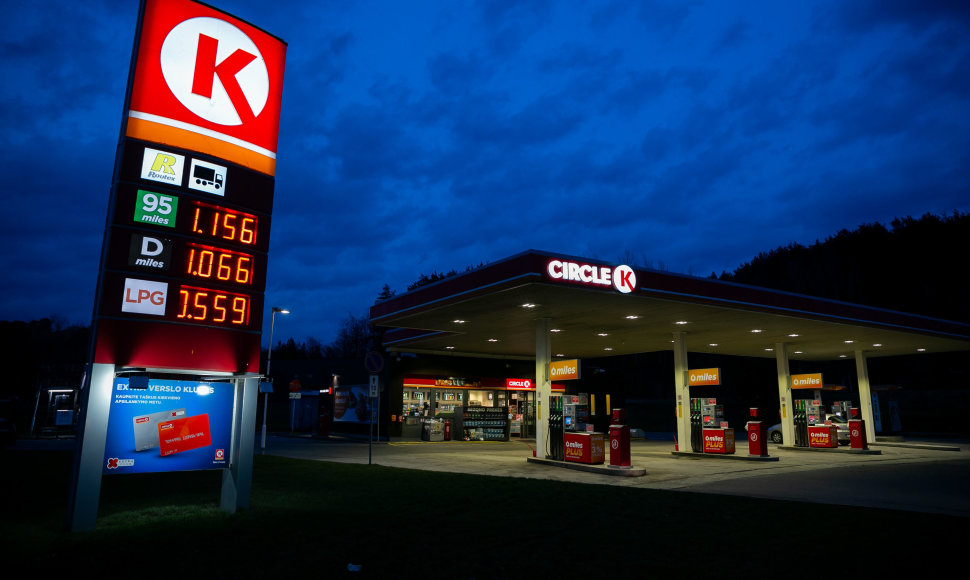Rokas Laurinavičius, fuel category manager for one of Lithuania’s largest petrol station networks Circle K, says that while the climate is warming just like every year, petrol stations are prepared for all possible scenarios.
“We began sales of winter diesel, which is especially resistant to winter temperatures. Nature is unpredictable and can present us with various surprises, but drivers should not be worried about this – the diesel sold at petrol stations will serve even under the harshest conditions,” R. Laurinavičius says.
According to Regitra data, by November 1, 1.55 million diesel-powered vehicles were registered in Lithuania, comprising 68.3 per cent of the country’s total vehicle park. As diesel fuel is far more sensitive to the cold than other types of fuel, during every cold season diesel vehicles always grow in relevance.
With bio-supplements now being included in diesel fuel sold in winter, the main change this year for two out of three drivers in the country will be what diesel fuel to choose.
According to the fuels expert, this winter, the Lithuanian market will see sales of diesel fuel with two types of supplements – first-generation bio-product RRME or diesel with synthetic additions.
“From December 1 this year, diesel must contain no less than 7 per cent bio-supplements. Every seller of fuels chooses what type of supplements they will sell and we recommend that our clients would familiarise themselves with this information, look into the differences between supplements and then decide what fuel to use. The client will be able to find such information at petrol stations, even in fuel quality passes, which can be presented by the personnel administering the petrol station. Our network has chosen to work with the more advanced synthetic diesel supplement, and we will respectively mark this in clearly visible locations. Drivers definitely need not worry that this supplement will worsen engine ignition or the fuel system’s operation – vehicles with the supplements will start up easier, the engine will work more effectively, and there will be no risk of the diesel fuel freezing,” he says.
According to R. Laurinavičius, so far we have not seen any exceptionally low temperatures and so, those driving diesel vehicles have not faced any particular winter challenges. Nevertheless, it is worth remembering a key rule that will help avoid winter troubles.
“Every year, there are inevitably drivers who find that the diesel fuel in their cars’ fuel tanks forms layers and turns into a gel, and it would be good if they manage to avoid losses of thousands of euros in such unpleasant cases. I would like to urge drivers to choose official, legal retail fuel sales locations and not pour fuels that are unsuitable for the season into their tanks – even fuels you might have once set aside yourselves. The cold is now becoming the main factor and it would be unwise to ignore,” the fuel expert advises.
In Lithuania, C class summer diesel fuel (resistant to the cold up to -5°C) is sold, with the E class being an intermediary, resisting the cold up to -15°C. There is also the intermediary F class, which resists the cold up to -20°C.There are also A1 and A2 classeswhich were solely mineral-based up to now.
About Circle K Lietuva
The company Circle K manages 92 petrol stations across Lithuania and based on income, is the largest retail oil sales company. The majority of its petrol station network is comprised of 81 full-service stations with another 11 being automatic. Based on tax contributions, Circle K was sixth in Lithuania in 2019.












